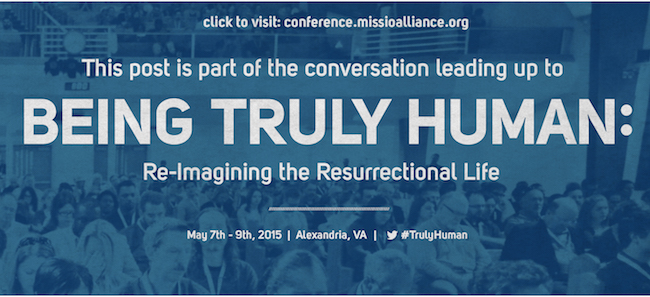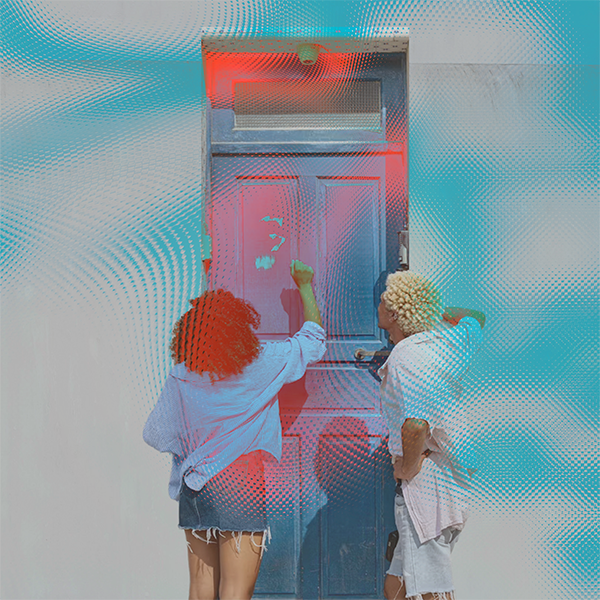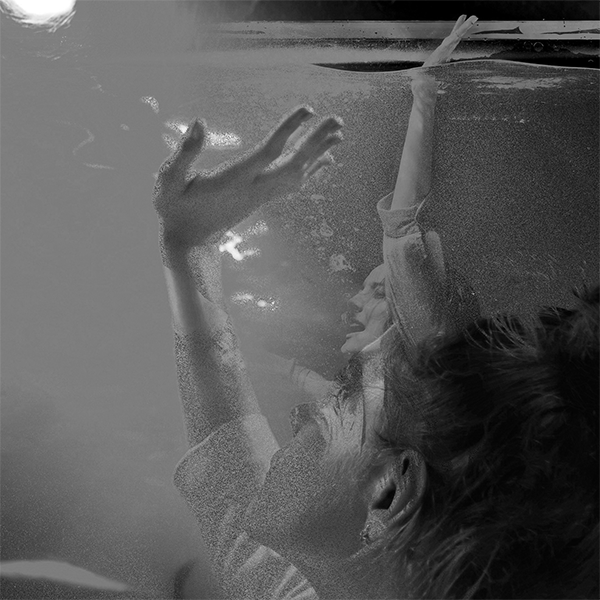#TrulyHuman: On Resurrecting My Love For Church
Sometimes it feels like the hardest place to be truly human is in a church gathering.
When you reach that dry place in the desert, church begins to feel less like an oasis on the horizon, less like a beautiful reminder of resurrection hope, and more of a paralyzing ache dragging you down physically, mentally, emotionally and spiritually.
When the idea of participating in a church inflicts searing pain, I believe one should staunch the bleeding before hitting the pew again. There are times in our lives where pressing “pause” on the gathered people of God might be just the opening the Holy Spirit needs to move and heal for a season.
This is the space I found myself in last fall with my husband as we fasted from church for a few months. It was a counselor who called it first: too much hurt for too long, she said; too much exclusion had damaged and altered pieces of my heart as a woman called to teach and pastor, too much disappointment had caused pain and cynicism to explode in our car after services, no matter where we went. And, of course, it was no use blaming the church either; some of our brokenness came from our childlessness and the way the family orientation of church stung, too. For a myriad of reasons, church was too hot to handle.
Church—the thing I believe to be the hope of the world. The body through which Jesus works, molding his image-bearers into his likeness. This thing I have loved so much, and alternately struggled with, but have never given up on.
And so we quit briefly, in fits and starts, because my husband couldn’t stand not going somewhere some Sundays. I often stayed home and journaled and listened and prayed and meditated. And here is the truth: there was a fresh breeze blowing as I sat on my navy blue couch and met with God. Healing was there, gently wafting in, but it was only in the stillness, in the recreating places.
I had no idea how long it would take to heal the hurt. I tried to retrace our steps to see if we could have done something differently. I couldn’t come up with much, but I did sense there was something we were struggling with—hearing and believing the voice of the Holy Spirit as he directed us into or out of churches we were visiting. We were focused too much on externals, instead of those significant nudges we’d discuss cautiously: I do not see a commitment to the marginalized in any significant way at this church. But we could make it work, right? We so badly wanted to find a home.
Resurrection, however, was coming. And leaning into the Holy Spirit’s movement brought the hope of it more quickly than we could have pictured; it is still happening five months later. One day a google search led us to a small Wesleyan congregation about 15 minutes away. In a strange show of exuberance, my left-brained husband said he thought we belonged there, even though we had never darkened the doors.
Oh, really? I thought. After this long search for church, you know this for sure?
The truth is we slipped into the back row and observed a messy gathering of beautiful, diverse people and were overwhelmed when about 40 of them came up and shook our hands. The worship music smacked of brokenness and holiness, and something was happening in that humble gymnasium, with the mismatched church chairs and the younger, new pastor, and the older man dancing in the aisles with a “Hallelujah!” that once made me physically jump when he shouted from the seat in front of me.
Two or three weeks in, I wanted to weep with gratitude. Four and a half months later, the pastor asked me to preach, which came as a surprise. So soon, I thought. I was excited to preach in such a place, where all of the broken people are invited, where it is safe to admit how human we are, to testify to the work of the Spirit in our midst.
I dutifully let the pastor know that anytime I preach, there are usually at least one or two negative comments, not about the preaching, but the woman daring to preach at all. He didn’t seem to mind, assuring me of his full support. And so I told the story of the Unclean Woman and Jesus’ movement toward the most broken, of his love for everyone, of moving from complete exclusion to complete inclusion in the kingdom of God. It felt, again, like 40 people approached to thank me. Honestly, it was an experience of resurrection, one I cannot fully put into words.
The next Sunday I entered the church door and not a second later someone said the words: “I was here when you attempted to preach last Sunday. At least I’ll call it preaching, since the pastor let you get up and do it.”
Lying on my bed that afternoon, I felt the weight of the attack. Each attack I experience when I preach or teach or write—and they come fairly frequently—cuts down to the core of my identity. I feel my own brokenness and insecurities to the full. Ironically, I cannot recall a time when someone was criticizing the content of what I preached on; instead, anger arises that I am a woman, this core piece of my identity given by my good God. It is shaming and often harsh, but here is what I believe.
These various comments come from serious convictions with which I disagree; or they come from open, gaping wounds; or they come because the one speaking is jealous or insecure or needs an object for their anger.
All I want to do is get up and preach from the word of God to the people of God, to draw the broken to the redemption offered through Jesus, and in the process, I often serve as a lightning-rod on an issue, however much I dislike it.
So lying in bed that afternoon, I began to listen for the Spirit’s voice. I asked in prayer to see this man as one who is human and has been wounded, so that I could acknowledge it was pain that led to his comment. I asked for his healing, to be set free in Jesus’ name. I prayed that he would grow and flourish and thrive.
And the poison began to lose its sting. In Jesus, I love this man. I pray for him. I am hopeful for God’s work in his life.
And so resurrection happens, in love and in hurt, in good church times and bad church times. It happens in the ekklesia of God, where we should be freed up to be the most truly human that we are, surrounded by others seeking to find their way.
If the last few months have affirmed anything, it is this: I want to be one of those who shows up, and pitches in, and stays as long as I can. I want to be among the ones who till the soil, have the hard conversations, and experience the healing that only comes from deeper wells and relationships. One of the ones who doesn’t ultimately give up on the church, but lives to be a part of its mission of resurrection.
Are you experiencing resurrection in the area of church? If so, how?
—
Other Resources:
Link to Suzanne’s Sermon on The Unclean Woman
Why We Never Gave Up on Church by Karen Zacharias Davis
Scribe or Prophet? (a post on the writing of Marilynne Robinson and sticking with church) by Scot McKnight
[Image: Barbara Willi]




